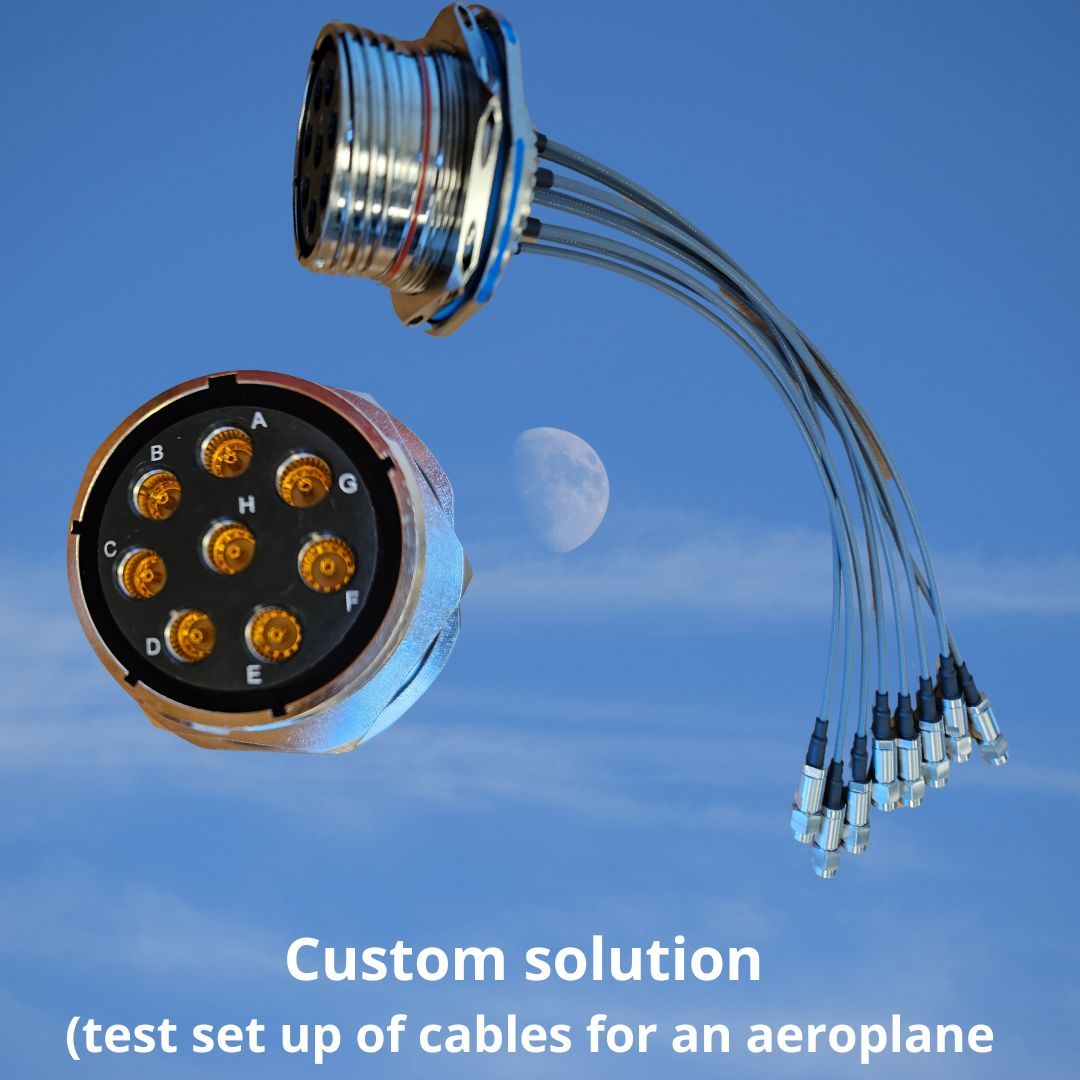Customized Cable Assembly Harness
IPP & Delta have designed a special combination of 38999 connectors, including a multiple cable harness for one of our major customers. With harsh requirements such as phase matching, temperature, as well as weight over excellent electrical performances, IPP has managed to find an excellent solution for the application!
More Background: Phase-matched RF cables with multiple-contact interconnects are crucial in various applications where precise signal timing and integrity are critical, such as in high-frequency electronics, telecommunications, and data transmission systems. Here are some aspects to consider and potential benefits of your design.

We are fully capable of assisting with the complete package of these steps to encounter a fully compliant solution, including:


